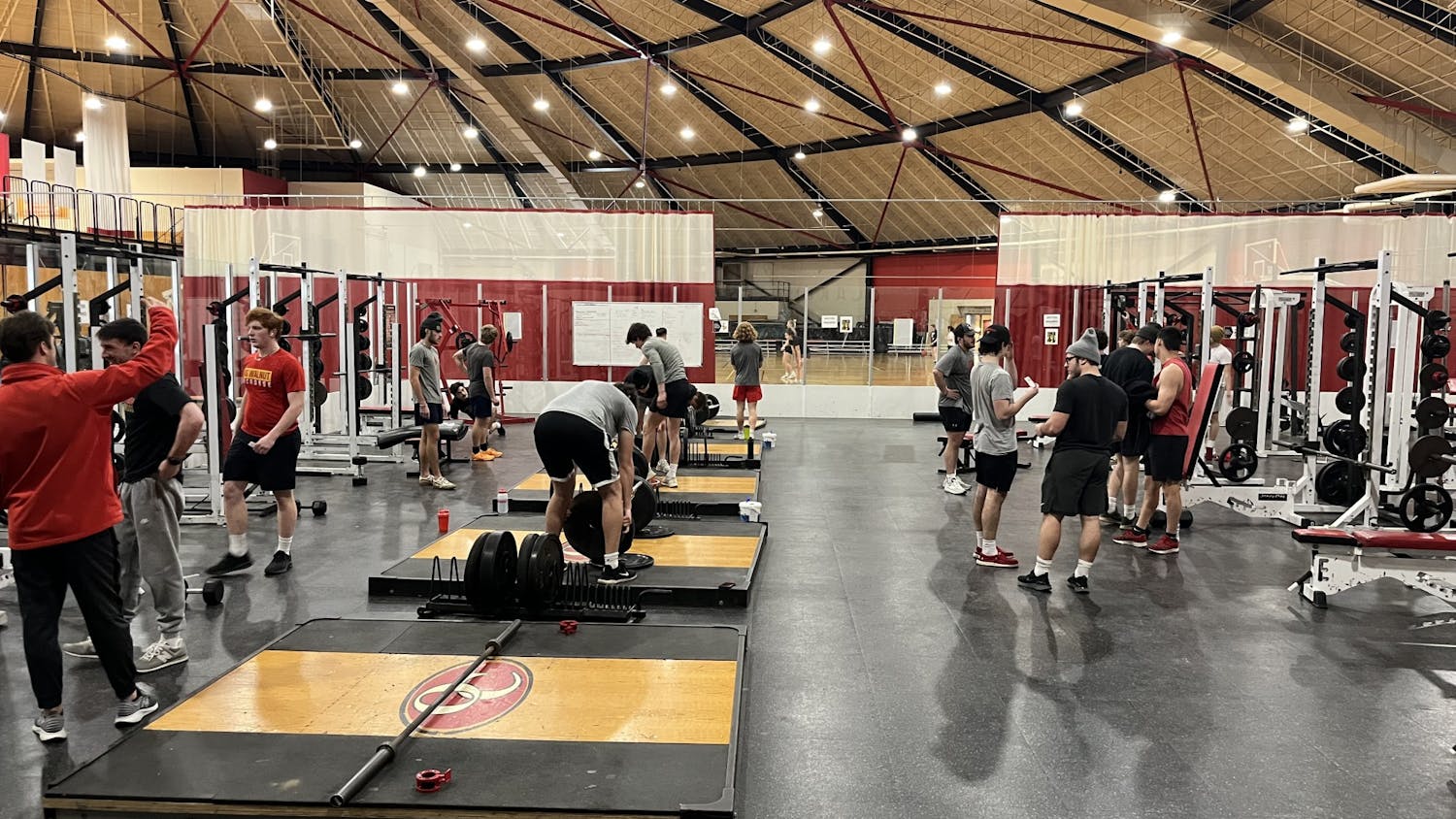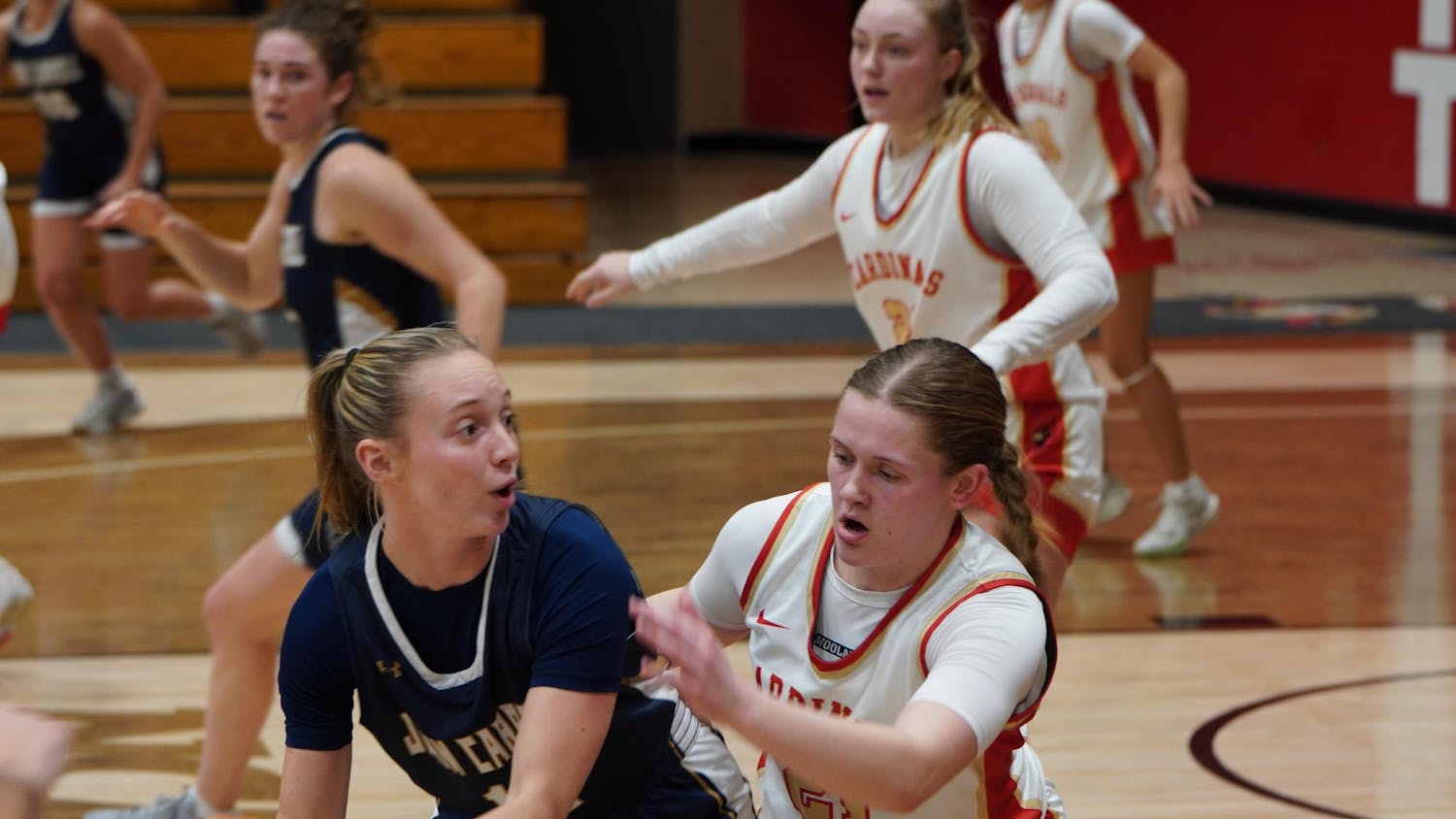There is a man interred in the mausoleum at Otterbein Cemetery that once broke up a Ku Klux Klan march in the 1920s by driving his car through the middle of it. For his troubles, he awoke next morning with a burning cross in his yard.
The cemetery is located two blocks north of campus on the corner of Knox and Walnut. An association was put in charge of the purchase of the lots, burials and maintaining the property. The oldest section of the cemetery was divided into 1,959 lots. Two additions were made to provide more burial space. In 1924, the mausoleum was dedicated, which added 290 crypts to the grounds.
In 1940, another land purchase, now called the Knox section extended the capacity by 1,165 additional plots, bringing the total number to 3,414. In 1952, Westerville dissolved the association in charge of the cemetery and took over ownership, and to this day it still holds ownership.
The mausoleum was originally supposed to hold 400 crypts and have dimensions of 72 feet by 60 feet, but revisions during construction limited it to the present-day dimensions of 56 feet by 82 feet, which reduced the number of possible crypts.
Buried in the cemetery are several former Otterbein founders, professors and staff members and veterans from the Civil War, Spanish-American War, World War I and World War II. There are also performers and writers and members of the Anti-Saloon League, which successfully lobbied for Prohibition and the 18th Amendment in 1920.
Otterbein Cemetery holds the remains of a few thousand people, all of who lived their lives and died, leaving behind fascinating stories. With help from Otterbein archivist Stephen Grinch, Westerville Library’s Local History Coordinator Beth Weinhardt and Westerville Department of Public Service Administrative Assistant Sharon Lytle, we’ve pieced together some of those stories.
Benjamin Russell Hanby
Birth: July 22, 1833 Death: March 16, 1867_
__Otterbein Graduate of 1858; Composer_
Hanby, a composer, published his first song, “Darling Nelly Gray,” in 1856, when he was a student at Otterbein.
After graduating in 1858, he worked as a fundraiser for Otterbein. In January 1859, he was granted a license to preach for the United Brethren Church.
Hanby was a vocal abolitionist, and because of that and his ideas on music in church and worship for children, his time at the church was not peaceful.
He wrote the Christmas song “Santa Claus” (now known as “Up on the Housetop”). He moved his family to Chicago to work for the George F. Root music publishing company.
He died of tuberculosis in Chicago. He was buried next to his parents.
Thomas McFadden
Birth: Nov. 9, 1825 Death: Nov. 9, 1883
Otterbein Professor; Civil War Surgeon
McFadden was a local physician in Westerville when he began his service at Otterbein. First he was asked to be the secretary for the Board of Trustees because of his beautiful handwriting, and then he was asked to be a professor because of his experience in medicine and finally, he became the science chair for 20 or so years of the institution’s history.
He left the university in 1861 along with a brass band to volunteer in the Civil War as a field surgeon. He served at the Battle of Shiloh.
The war broke him both mentally and physically. He lamented to his wife about wanting the basic tools he had in his office at Westerville. He could not save men’s lives and sometimes felt like a butcher because he couldn’t save arms or legs. Certain things could be done in the office that couldn’t be done in the battlefield.
He returned to Westerville, but still wanted to serve in the military. He was then put in charge of a prisoner of warcamp until his health deteriorated. He continued to teach until the end of his days.
William Hannibal Thomas
Birth: May 4, 1842 Death: Nov. 15, 1935
First African American student at Otterbein
Thomas enrolled just before the Civil War and was Otterbein’s first African American student. Faculty and students were split on him. Many welcomed him with open arms and minds. Those that opposed his enrollment didn’t stay at Otterbein for very long.
Thomas decided to enlist in the Civil War and was shot in the arm during the second battle at Fort Fisher. He had to have his arm amputated.
Thomas didn’t return to Otterbein after the war, serving as a lawyer in the Carolinas before his retirement in Central Ohio.
After retirement, Thomas moved into a hotel and died in poverty and obscurity.
He has a Civil War veteran’s marker in the cemetery, making his plot stand out.
Howard Hyde Russell
Birth: Oct. 21, 1855 Death: June 30, 1949
Founding Member of Anti-Saloon League
Russell was the founder of the Anti-Saloon League, which was the birthplace of Prohibition in Westerville and subsequently the United States in the early 20th century.
A lawyer by trade, Russell gave up the profession to study ministry at Oberlin College.
Russell was such a good speaker that back when chapel was mandatory for Otterbein students, they saved their two excused absences per year for when he spoke.
He traveled the country promoting Prohibition and made the Anti-Saloon League a single-issue cause and a non- partisan issue, gaining 5 million pledges against alcohol.
Russell is famous for saying, “This is a dry funeral. We’ll take a slice if we can’t get the whole thing and we’ll take the crust if we can’t get a whole slice.”
Earnest Cherrington
Birth: Nov. 24, 1877 Death: March 13, 1950
Anti-Saloon League Publication Editor-In-Chief
In 1908, Cherrington was the assistant editor of the Anti-Saloon Publication, which printed 40 tons of anti-alcohol literature a month. A year later, he became the editor-in-chief.
He helped form the World League Against Alcoholism in 1919, and in the 1920s, he wrote The Standard Encyclopedia of the Alcohol Problem, a six-volume set of encyclopedias used to educate people about the evils of alcohol.
He spent most of his life working for the Anti-Saloon League.
Alzo Pierre Rosselot
Birth: Jan 18, 1882 Death: July 18, 1966
Otterbein student and professor
Rosselot played football during his time as a student from 1902-1904 and was an assistant coach from 1905-1911.|
Rosselot was a French professor at Otterbein for several years after he graduated. In the early days, when professors taught multiple subjects, he also taught history and government.
He was one of the first students to be involved in country clubs, which were social groups similar to Greek Life before it was established. He was one of the proponents of the Greek system becoming formalized on campus.
His daughter developed the “immersion courses” that Otterbein uses to teach language.
He was known for being an outspoken civil rights believer. In the 1920s, the KKK marched through town and he jumped in his car and drove through the parade to break it up. The next day he had a flaming cross on his lawn.
Rosselot is interred in the mausoleum.
Oscar O. Koeppel
Birth: July 25, 1875 Death: Nov. 18, 1946
Distinguished Service Cross recipient
Koeppel was a member of the Aeolian Male Quartet at Ohio Wesleyan University. He was well known as an established singer.
He was a participant of both the Spanish-American War in the 4th infantry and WWI with the 42nd regiment.
During WWI, Koeppel received the Distinguished Service Cross, the second highest honor behind the Medal of Honor. As the story goes he was wounded by shrapnel and against the urging of his men, he directed them across a river, while under fire, made sure everyone crossed and that the next person in command knew what do to before he sought the attention of the medics.
Koeppel’s third wife, parents and two of his children are buried in the cemetery.








